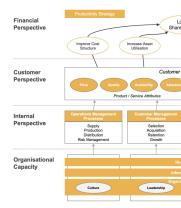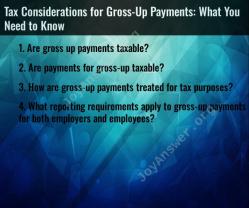What are the fees associated with the Lincoln Financial Network?
The specific fees associated with the Lincoln Financial Network (LFN) can vary depending on the type of financial products and services you are interested in, as well as the specific financial advisor or broker-dealer you choose to work with. Lincoln Financial Network is a division of Lincoln Financial Group, a large financial services and insurance company. They offer a range of financial and insurance products, and fees can differ based on the products and services provided.
Common fees and charges that may be associated with financial products and services offered by Lincoln Financial Network or its affiliated financial professionals include:
Commissions: If you purchase investment products, such as mutual funds or variable annuities, through a financial advisor associated with LFN, they may earn commissions based on the products they sell.
Management Fees: If you invest in managed accounts or advisory services, you may be subject to ongoing management fees, typically a percentage of your assets under management (AUM).
Insurance Premiums: If you purchase insurance products such as life insurance or annuities, you'll pay premiums. The amount of the premiums can vary based on the type and amount of coverage.
Transaction Fees: Some financial transactions, such as buying or selling securities, may incur transaction fees or charges.
Wrap Fees: If you participate in a wrap fee program offered by a financial advisor, you may be subject to an annual wrap fee, which covers advisory and administrative services.
Account Maintenance Fees: Certain accounts may have maintenance or administrative fees.
Early Surrender Charges: Some insurance or annuity products may have early surrender charges if you withdraw funds before a specified period.
Miscellaneous Fees: Depending on the specific product or service, there may be other fees or charges associated with account maintenance, trading, or other financial activities.
It's important to note that Lincoln Financial Network advisors and representatives are typically compensated through a combination of commissions, fees, and other compensation structures, depending on the specific services they provide. The fee structure and rates can vary widely from one advisor to another.
Before working with a financial advisor or investing in financial products through Lincoln Financial Network, it's crucial to have a clear understanding of the fees and charges associated with the products or services you're considering. Your advisor should provide you with a disclosure document that outlines all fees and costs involved, and you should review this carefully before making any financial decisions. Additionally, you can directly inquire with the specific advisor or Lincoln Financial Group for detailed fee information based on your individual circumstances.
Understanding the Fees Associated with the Lincoln Financial Network
The Lincoln Financial Network charges a variety of fees for its products and services. These fees can be categorized into three main types:
- Investment fees: These fees are charged for the management of your investments. They may include advisory fees, fund management fees, and transaction fees.
- Financial planning fees: These fees are charged for the development and implementation of a financial plan. They may include hourly rates, retainer fees, or flat fees.
- Other fees: These fees may include account maintenance fees, transfer fees, and withdrawal fees.
Fee Structure and Transparency in Financial Services
The fee structure for financial services can be complex and vary depending on the provider and the products and services being offered. It is important to understand the fee structure before you invest or engage a financial advisor.
Financial services providers are required to disclose their fees to clients. This disclosure should be clear and concise, and it should explain how the fees are calculated and charged.
Calculating and Managing Fees for Investments and Financial Planning
When calculating and managing fees for investments and financial planning, it is important to consider the following factors:
- The type of investment or financial planning service: Some types of investments and financial planning services have higher fees than others.
- The amount of money you are investing or the amount of financial planning services you are receiving: Fees are often charged as a percentage of your investment or the value of your financial plan.
- The experience and qualifications of the financial advisor: More experienced and qualified financial advisors may charge higher fees.
It is also important to consider the impact of fees on your investment returns and financial planning goals. High fees can reduce your investment returns and make it more difficult to achieve your financial goals.
Lincoln Financial Network Fee Comparison with Other Financial Networks
The Lincoln Financial Network's fee structure is generally competitive with other financial networks. However, it is important to compare fees from different providers before making a decision.
Negotiating or Reducing Fees in the Lincoln Financial Network
It is possible to negotiate or reduce fees in the Lincoln Financial Network. This is especially true if you have a large investment account or if you are using multiple services from the network.
To negotiate fees, you should start by talking to your financial advisor. If you are not satisfied with the response from your financial advisor, you can contact the Lincoln Financial Network directly.
Here are some tips for negotiating fees:
- Be polite and professional.
- Be clear about what you are asking for.
- Be prepared to walk away if you are not satisfied with the offer.
Here are some ways to reduce fees:
- Ask about discounts for multiple services or for large investment accounts.
- Consider using a fee-based financial advisor instead of a commission-based advisor.
- Ask about different types of investment accounts that may have lower fees.
It is important to note that you should not sacrifice quality financial advice or investment products in order to save money on fees.













